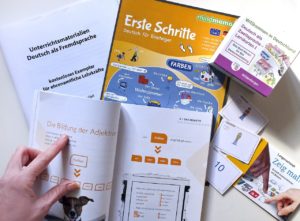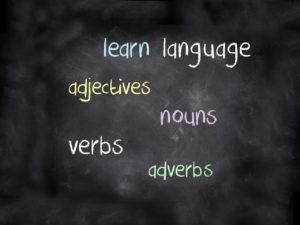
Working in Germany
Working in Germany Everything you need to know about finding work in Germany, what your resume must look like, recognition of studies, vocational careers, medical, pension and taxes.
New Skilled immigration Act – Changes will be implemented in phases, in November 2023, March 2024 and June 2024.
Detail about the changes can be found on the Make it in Germany website
Here is a link to the official Information about the Fachkräfteeinwanderungsgesetz (Skilled Immigration Act). Currently it is only available in German.
The latest information in English can be found Anerkennung-in-deutschland website and Make it in Germany website
Below you will find pages where you can find more information about finding a job in Germany. There are some professions in demand with relaxed entry requirements, read more on Make in it in Germany. There are different Employment visas available, for example:
Info about in demand skilled crafts and trades can be found on the Make it in Germany website

Working in Germany Everything you need to know about finding work in Germany, what your resume must look like, recognition of studies, vocational careers, medical, pension and taxes.
Are you a South African interested in completing vocational training in Germany? There is a specific visa application process for this. Learn more about it here. We also have a dedicated webpage about the German Vocational Training System.

An Ausbildung is a form of vocational training or apprenticeship where a student attends school and works simultaneously. The student gains both theoretical and practical knowledge at the same time.The training usually starts in September every year, but can start at other times as well.
Are you interested in studying in Germany? You can enrol at a University or Hochschule (Technical University).

Types of learning institutions Hochschule is the name for higher education. Under this, you can get the following institutions. Fachhochschule – University of applied sciences. Technische University – Technical University University – for academics. They offer doctoral and research programs Hochschule does not mean “Hoërskool”
The Chancenkarte (Opportunity Card) is a points-based immigration system introduced by Germany to attract skilled workers from non-EU countries. The Chancenkarte allows individuals to live in Germany while they search for a job, providing up to six months to secure employment.

Chancenkarte Germany, with its robust economy, rich cultural heritage, and world-renowned education system, has become an increasingly attractive destination for professionals from around the globe. For South Africans seeking to build a new life in Europe, the Chancenkarte, or “Opportunity Card,” offers a promising pathway What is the Chancenkarte? The
Are you considering Self-employment in Germany? You can find comprehensive information about the visa process for Self-employment in Germany here.

You can set up your own business in two ways, one is to work as a freelancer or as a self-employed entrepreneur (Gewerbe). If you want to work as a freelancer in Germany, you will need to apply for a Residence permit for the purpose of freelance employment.
Under certain conditions, you may be granted access to the German labour market as a language teacher. You can either be employed at a school or work as a freelancer.
Read more on the Make it in Germany website

Au Pair in Germany Au Pair is by definition a young foreign person, typically a woman, who helps with childcare and childcare-related housework in exchange for food, a room and some pocket money. Young men can also apply for Au Pair positions
Enrol in a German language course.

You can apply to study German in Germany. For this, you need to apply for a Long Term Visa National Visa. Take note that the procedure is different from that of a tourist visa.
Join your family in Germany

“German citizens or citizens from non-EU countries who have an Aufenthaltserlaubnis (residence permit) or a Niederlassungserlaubnis (settlement permit) are allowed to bring their relatives to Germany. This is known as the ‘reunification
According to Section 16d AufenthG (German Residence Act) – “For the purpose of recognising professional qualifications which a foreigner has acquired abroad, a foreigner is to be granted a temporary residence permit to undertake a qualification measure and to take a subsequent examination, if a body responsible according to federal or Länder regulations regarding recognition of professional qualifications has determined that adaptation or compensation measures or further qualifications are necessary”. Read more on the Make it in Germany website
According to Section 18d AufenthG (German Residence Act) – You can apply for a visa for research in Germany. Read more on the Make it in Germany website
People from 3rd world countries can apply to do volunteer service in Germany.
There are four types of Voluntary services in Germany, that you can apply for. They are Federal Voluntary Service (BFD), Voluntary Social Year (FSJ), Voluntary Ecological Year (FÖJ), European Voluntary Service (EVS)

People from 3rd world countries can apply to do volunteer service in Germany. There are four types of Voluntary services in Germany, that you can apply for, they are: Federal Voluntary Service (BFD), Voluntary Social Year (FSJ), Voluntary Ecological Year (FÖJ), European Voluntary Service (EVS) Before you can apply for a visa, you will need a Contract/Arrangement for your voluntary service in Germany.
Working in the creative field. You can apply for a visa to work as an artist
As a professional driver of heavy goods vehicles (HGV) or buses, you have good chance of finding a suitable job in Germany
The German labour market is also open to professional athletes from abroad
The BAMF (Federal office for migration) hotline offers personalised information and advice, in German or English, on the following topics:
Job search, work and careers
Recognition of foreign vocational qualifications
Entry and residence
Learning German
The hotline is available from 9:00 a.m. to 4:00 p.m. CET, Monday through Friday,
Visit the BAMF website for more information. There is an option to contact them via an online form on their website
+49 3018151111

Working in Germany Everything you need to know about finding work in Germany, what your resume must look like, recognition of studies, vocational careers, medical,

Moving to a new country can be both exciting and overwhelming at the same time. The thought of starting a new chapter in your life

Long Term visas are seen as visits longer than 90 days and will typically be for work or study visits. If your application is approved,

There are several approaches to learn German, all of which can help you achieve your language learning goals. You can opt for convenient online sites
You must be logged in to post a comment.